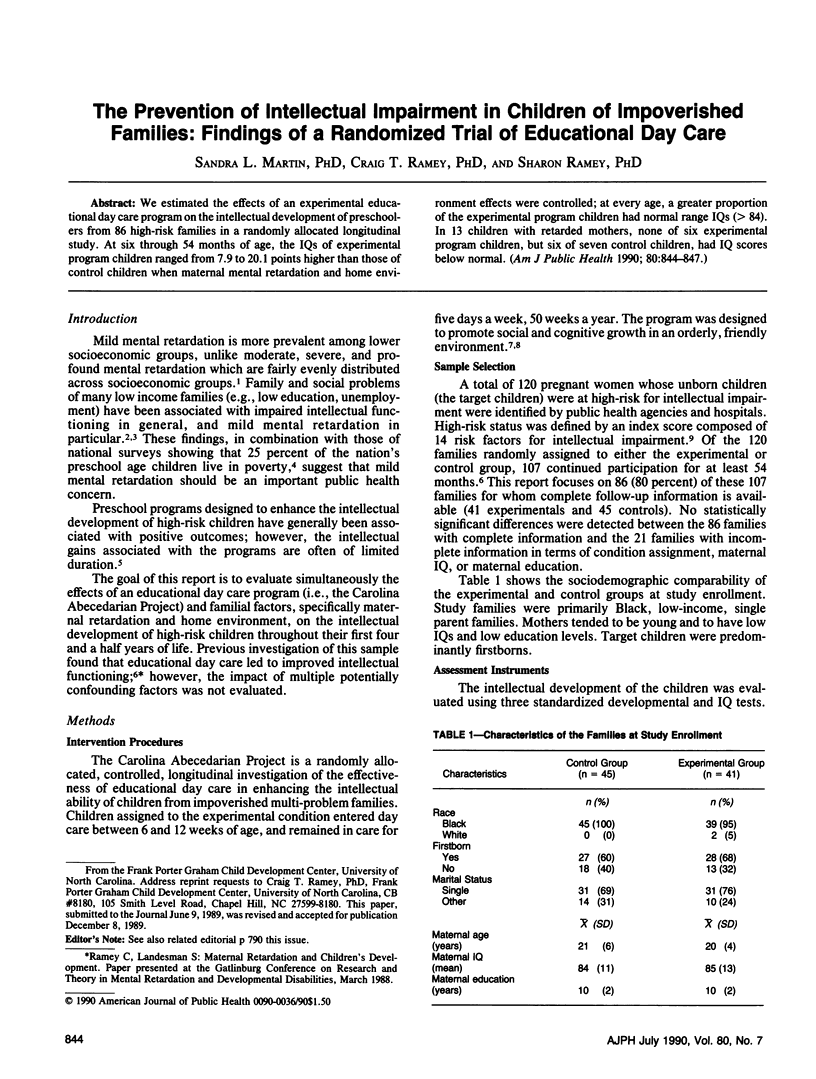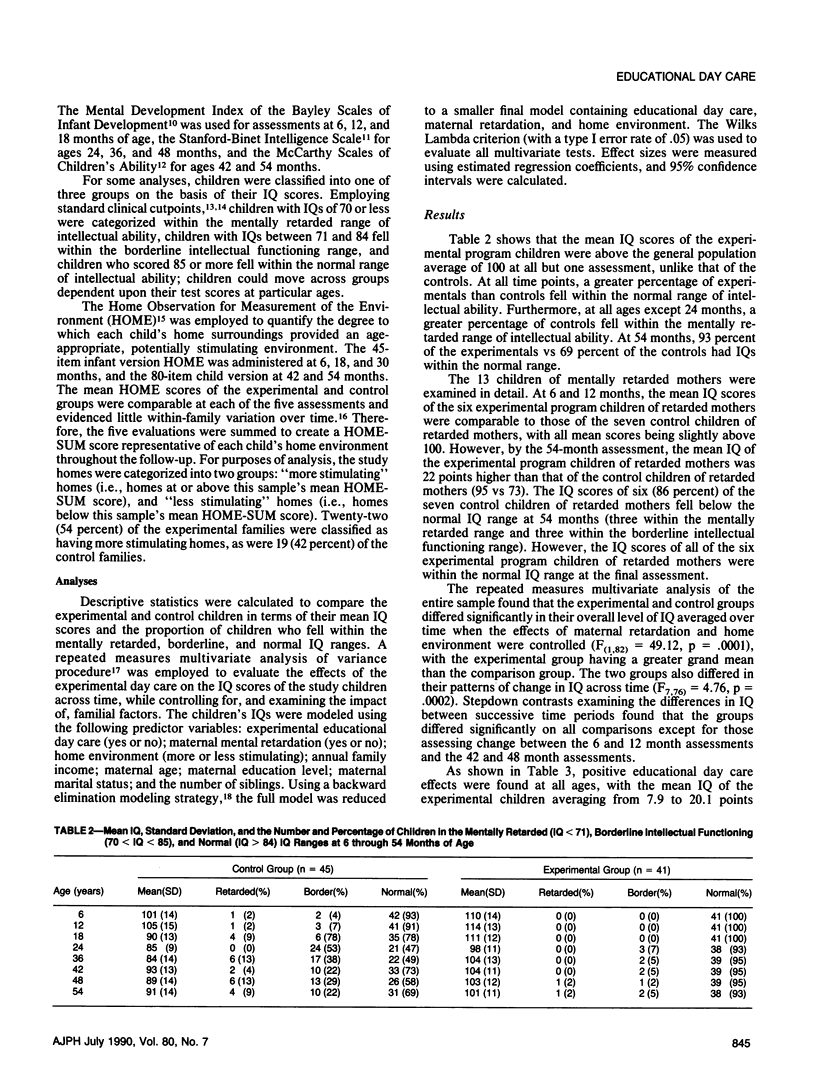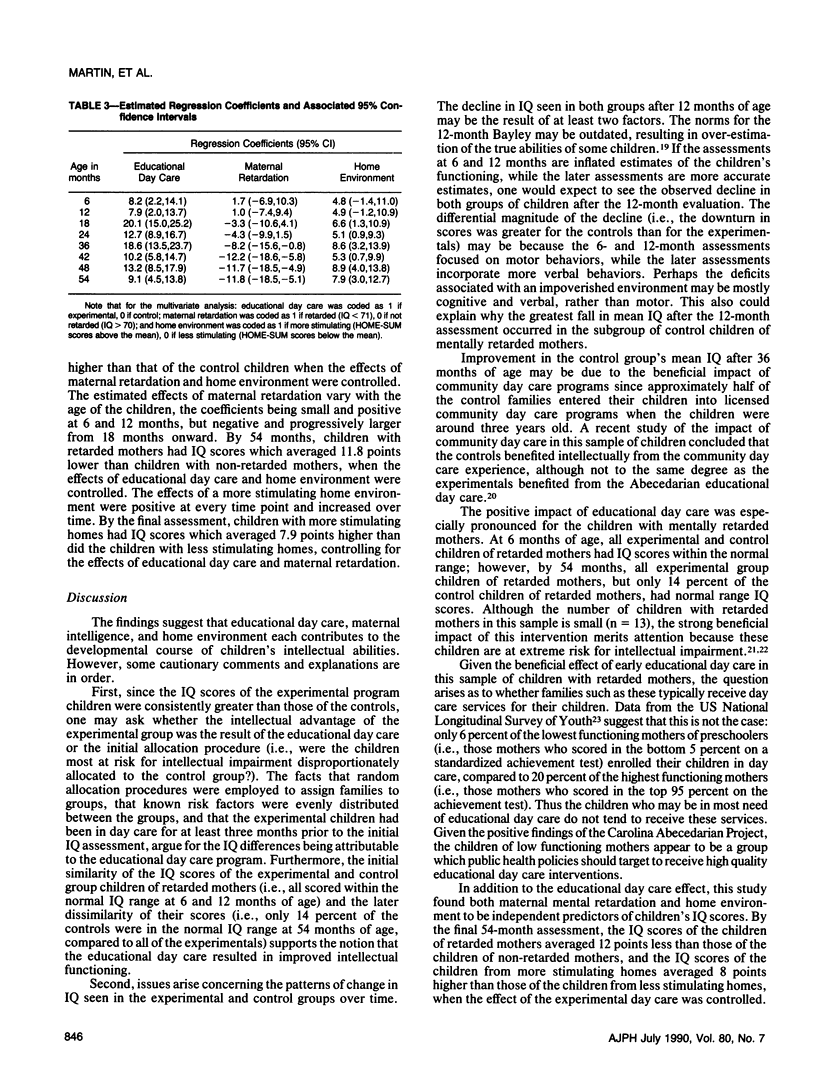Abstract
We estimated the effects of an experimental educational day care program on the intellectual development of preschoolers from 86 high-risk families in a randomly allocated longitudinal study. At six through 54 months of age, the IQs of experimental program children ranged from 7.9 to 20.1 points higher than those of control children when maternal mental retardation and home environment effects were controlled; at every age, a greater proportion of the experimental program children had normal range IQs (greater than 84). In 13 children with retarded mothers, none of six experimental program children, but six of seven control children, had IQ scores below normal.
Full text
PDF



Selected References
These references are in PubMed. This may not be the complete list of references from this article.
- Burchinal M., Lee M., Ramey C. Type of day-care and preschool intellectual development in disadvantaged children. Child Dev. 1989 Feb;60(1):128–137. doi: 10.1111/j.1467-8624.1989.tb02702.x. [DOI] [PubMed] [Google Scholar]
- Jacks R. N. Urban distribution of educable mental handicap. J Ment Defic Res. 1968 Dec;12(4):312–316. [PubMed] [Google Scholar]
- Ramey C. T., Campbell F. A. Preventive education for high-risk children: cognitive consequences of the Carolina Abecedarian Project. Am J Ment Defic. 1984 Mar;88(5):515–523. [PubMed] [Google Scholar]
- Ramey C. T., Smith B. J. Assessing the intellectural consequences of early intervention with high-risk infants. Am J Ment Defic. 1977 Jan;81(4):318–324. [PubMed] [Google Scholar]
- Ramey C. T., Yeates K. O., Short E. J. The plasticity of intellectual development: insights from preventive intervention. Child Dev. 1984 Oct;55(5):1913–1925. [PubMed] [Google Scholar]


